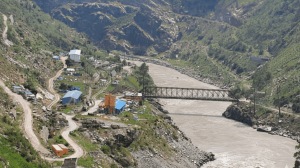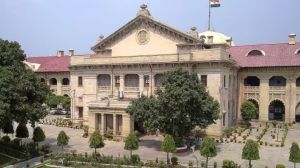My Dear Students | What we lose in an algorithm-mediated world of social media echo chambers
Nigam Nuggehalli writes: "After being the centre of attention online, with our interests and desires being indulged all the time, we appear to have lost the ability to analyse facts in a deep and thoughtful manner. Our brains are now hardwired to sift through materials to find what is relevant to us and only us.
 Social media connects you with a community of like minded philosophers. (Graphics by Abhishek Mitra)
Social media connects you with a community of like minded philosophers. (Graphics by Abhishek Mitra) (‘My dear students’, a fortnightly column that is a conversation with young minds on current events, books, popular culture — just about anything that’s worth talking over a cup of coffee.)
Dear students,
Today I want to talk to you about technology and personalised social media. Curiously, I was led to this topic when I spent the previous Sunday morning looking through the weekend newspapers. To avoid confusion, when I said I looked through newspapers, I meant I actually looked, not scrolled online.
Like you, I also get my fair share of news through Twitter and YouTube everyday. I like Twitter and YouTube because I often get to see quirky humour, memes and if I am lucky, some unvarnished facts. I am aware that the newsfeed is personalised to my tastes and interests.
YouTube is particularly mischievous in this regard. Sometimes, I feel YouTube knows me better than I know myself. I also look forward to the Sunday edition of newspapers where I receive news that’s not especially curated for me. I love the feeling that I am reading something that an algorithm has not chosen for me. I read in the papers about Salman Rushdie’s latest book and about Mithila paintings. For some reason unknown to me, online algorithms have decided Rushdie and Mithila paintings are not for me.
My experience with weekend newspapers brings home the radical way in which technology has impacted our reading habits and personalities. I have been reading a book on the philosophy of technology by Langdon Winner.
Winner’s book, titled “The Whale and the Reactor” is about the myriad ways in which politics, personality and technology interact with each other. Langdon makes the point that the curating of digital news content has deepened the narcissistic instincts in us.
Not only does digital media focus on our likes and dislikes but also ‘offers opportunities for broadcasting one’s own marvelous personhood and for seeking spaces in which the amplification of the “Me” finally becomes a readily available project, one potentially available to anyone active online.’
Social media has made us focus more on ourselves, put us in echo chambers and emphasised how we can make ourselves more attractive to others. There is no more stronger antidote to leading empathetic lives with an emphasis on one’s role in one’s community. We are now emphatically the centre of our lives.
Of course, I am also struck by the fact that technology deepens our personalities. Let’s say you areinterested in political philosophy. Social media connects you with a community of like minded philosophers, links you to valuable resources, and suggests events and conversations you would have seldom thought of yourself.
That can be a good thing and a bad thing. It’s a good thing because for the first time we don’t have to depend on other people, we have machines to develop our hobbies, our interests and our talents. But we are also being enabled ultimately to become more self-centred and there’s every possibility that we become less conscious of other people’s needs and interests. Even the community with which we interact is one with whom we have mainly a transactional relationship. We are more interested in what we can get out of our online connections, rather than contributing to other people’s lives.
I will end by telling you about two further problems with technology and its effect on our personalities. I will begin with the lesser but more well known problem first. The way social media is obtaining information about our revealed preferences, it is entirely possible that we may cede control of our personalities to the gatekeepers of social media.
We won’t merely be narcissists but pseudo narcissists, obsessed not with ourselves but with a version of ourselves that algorithms have enabled.
The bigger problem is that technology might have permanently altered the manner in which we analyse the world around us. There is a story from the recently released memoirs of Prince Harry that struck me as particularly poignant.
Prince Harry, when he was barely in his teens, accompanied his father on a trip to South Africa. As Royals tend to do, they called in a famous historian, David Rattray, to tell Prince Harry and his family about the battle between the Redcoats and Zulu warriors at KwaZulu-Natal. Rattray was not a mere reciter of Imperial facts.
He criticised the British for their role in African history. The historian’s critique washed over Prince Harry as water off a duck’s back. All he heard were the stories of British valour in their fight against the Zulus. It’s as if he had a mental filter built in that only saw what he was most interested in. Prince
Harry writes ‘I had a view of battle, of Britain, which didn’t permit new facts. So I zoomed in on the bits about manly courage, and British power, and when I should’ve been horrified, I was inspired. We are all a bit like little Prince Harry nowadays. We read what we want to read, even if presented with a complex set of facts.
After being the centre of attention online, with our interests and desires being indulged all the time, we appear to have lost the ability to analyse facts in a deep and thoughtful manner. Our brains are now hardwired to sift through materials to find what is relevant to us and only us.
We need to go to the world, rather than expect the world to come to us. My dear students, it may already be too late to engage with the world on a blank slate. But perhaps you can begin with the Sunday papers. Go read about Rushdie and about Mithila paintings, even if your algorithm tells you otherwise.
- 01
- 02
- 03
- 04
- 05































